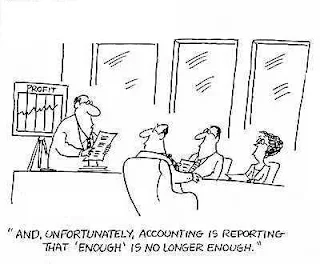When you are in a big organization, you probably will never create a solid career for yourself by worrying about who is using your solutions and ideas. There probably is some nepotism, if the staff around you are related to the management or some kind of related relationship with the senior people. People hate whiners, they hate bickering, and, most importantly, people who are confident that they have many plans and ideas don’t keep track of each one. And, let’s face it, we do not get far by just having ideas. You need to be likable in the eyes of the management and which means you are either in sync with them or singing the same tune all the time with the CEO ( probably the CEO likes that ! ). So cut it out. Worrying about who gets credit for which solutions or ideas will prevent you from having a fulfilling career in your hectic work life, especially in some kind of tough industries with challenging schedules to meet. Why ??
There is no such thing as infinite count of good ideas -
Good people - the ones who have tons of good ideas - share them. If you’re a business venturer, you have an idea and call some friends to share it. They may say why your idea won’t work, and you do the same thing the next week, until you land on an idea that does work. However for an entrepreneur, the ideas never stop coming and you never stop sharing them.
Those who have lots of ideas or at times “think out of the box” don’t bother to treasure their ideas and keep it secret. If your ideas are so valuable that they need protecting - or you think they do - you’ll come across as someone who is anything but creative. Then no one will hire you for your ideas. So if you want to be known for your ideas, act like someone who has a lot of them. Keep them coming and give them away all the time. It will benefit you more than keeping them tight in your pocket.
Bosses like “nice” people and dislike “smart alec” -
It may be true that most would rather work with people who are likeable than those who are competent but selfish. In fact, some view the nice people as more competent, even if they are not. And the skilled people who are jerks start appearing incompetent to their co-workers. That’s how powerful being nice at the office is. In other words, others will view you as you better at your job if you stop bitching about who gets credit for ideas or solutions.
As I see, management would likely prefer those who help others get their job done. That person genuinely cares if you are happy doing your work; they genuinely cares if it feel connected and engaged. One way to become that well-liked person - share your workable ideas and sell it for FREE.
Try make your boss look up to you -
Do not complain and do not be the “YES” man either. Demanding that your boss give you all the credit does not help, either. If you make your boss’s life easy, he may help you. Hopefully he or she will mentor you, train you, guide you through the organization and recommend pay adjustment for you. Bosses do not complain that they don’t have enough idea people working for them. Bosses complain that there is too much work to do. This is because bosses always think they are the idea people, whether or not they are. So if your boss thinks your staff has all the ideas, it doesn’t matter. Your boss will recognize those who gets things done.
If you want to get credit for your ideas, you could try a blog -
Resumes may not showcase ideas. Resumes are a history of what others have allowed you to do in their organization. If you want to be known for the ideas you are coming up with right now, then try to put in your blog. It’s incredibly easy to write a blog if you have a lot of ideas. The ideas need not reveal company proprietary info; they just need to reveal how you think - about a wide range of things in your specialised field. Try putting your ideas out for public reference. Don’t write about people stealing your ideas. Your blog ideas, should they be convincing, then others will associate those ideas with you.
Be “Open Source” software -
Imagine yourself as “Open Source” software versus “proprietary” software. Open Source’s strength is that many people contribute to the growth and refinement of it. It’s a breeding ground for people to share ideas. Credit is shared, and tracked as the software evolves. And as your contribution to it grows you will gain power and recognition in the community.
Alternative to blogging your ideas, Speak up -
Make sure the Boss hears your ideas at meetings, in emails, in memos — establish yourself as a constant “source” of bright thinking and good ideas within your team. Do not try to outshine your peers in front too much and control yourself. Otherwise, you may be seemed to be too arrogant in the meeting.
Work Hard -
Be seen as the person on the team that always does your homework. Never come to a meeting unprepared. Think through what the agenda is, and add your insights and ideas, in front of everyone. Refrain from talking irrelevant issues not related to the topic of discussion.
Push yourself to the front -
That doesn’t mean you have to be “in-their-face”, but it does mean that you should seek out opportunities where you can show your abilities to best advantage. (eg. trade shows, trade publications, special committees) In the long term, wise companies will ensure that all employees who participate in the creation of new ideas are recognized. New ideas are one of the engines of economic growth after all.
Where will all this get you? Hopefully some organization or headhunter will want to hire you or work with you not because of the list of tasks on your resume, but because you are that person with all those sound ideas. And once you’re hired, it doesn’t matter if someone has stolen your ideas and your credit.








